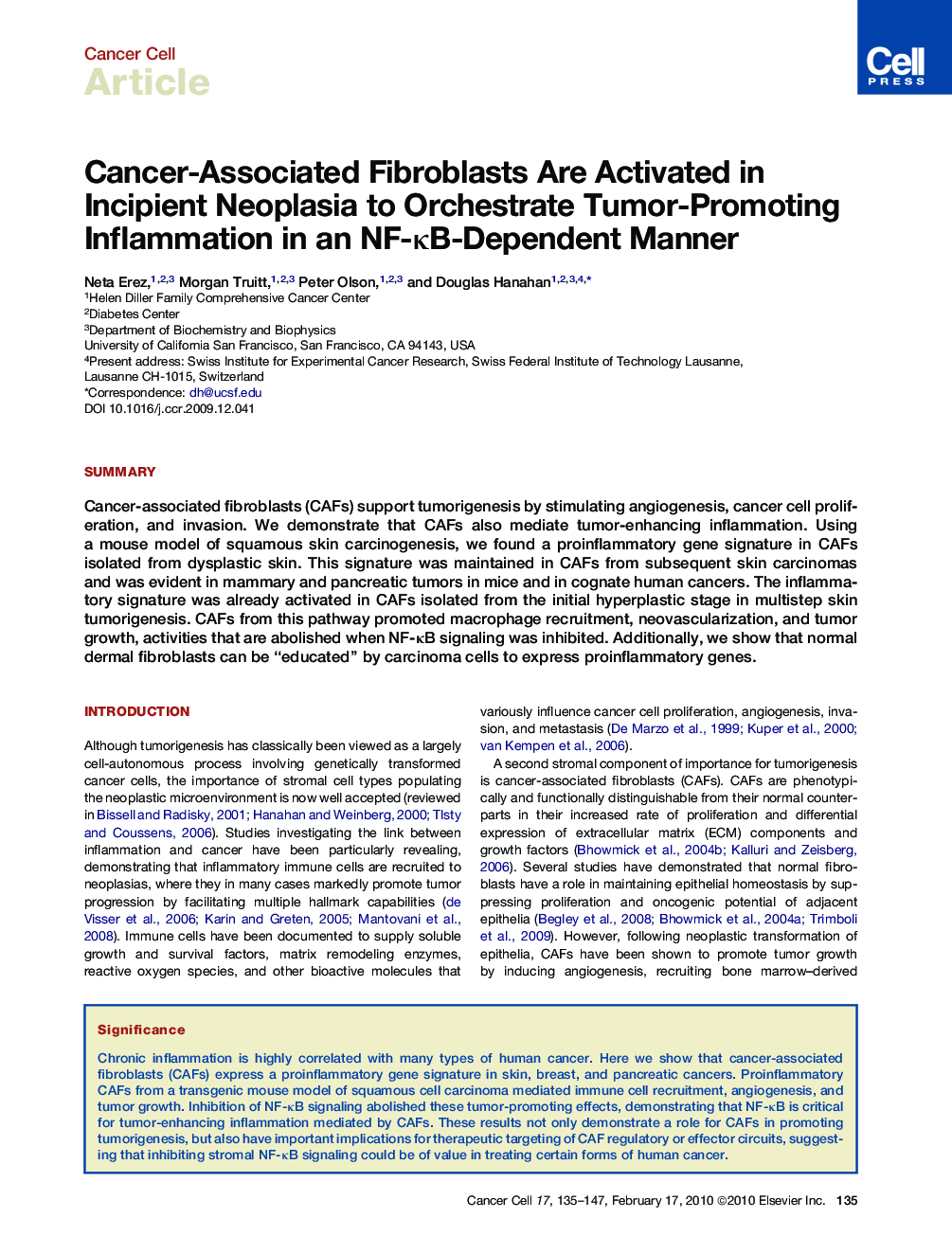| Article ID | Journal | Published Year | Pages | File Type |
|---|---|---|---|---|
| 2107697 | Cancer Cell | 2010 | 13 Pages |
SummaryCancer-associated fibroblasts (CAFs) support tumorigenesis by stimulating angiogenesis, cancer cell proliferation, and invasion. We demonstrate that CAFs also mediate tumor-enhancing inflammation. Using a mouse model of squamous skin carcinogenesis, we found a proinflammatory gene signature in CAFs isolated from dysplastic skin. This signature was maintained in CAFs from subsequent skin carcinomas and was evident in mammary and pancreatic tumors in mice and in cognate human cancers. The inflammatory signature was already activated in CAFs isolated from the initial hyperplastic stage in multistep skin tumorigenesis. CAFs from this pathway promoted macrophage recruitment, neovascularization, and tumor growth, activities that are abolished when NF-κB signaling was inhibited. Additionally, we show that normal dermal fibroblasts can be “educated” by carcinoma cells to express proinflammatory genes.
Graphical AbstractFigure optionsDownload full-size imageDownload high-quality image (232 K)Download as PowerPoint slideHighlights► Carcinoma-associated fibroblasts (CAFs) mediate proangiogenic inflammation ► CAFs in skin, breast, and pancreatic tumors express proinflammatory genes ► Tumor-enhancing activity of skin CAFs is NF-κB dependent and activatable by IL-1β ► Dermal fibroblasts can be educated by cancer cells to become pro-inflammatory CAFs
